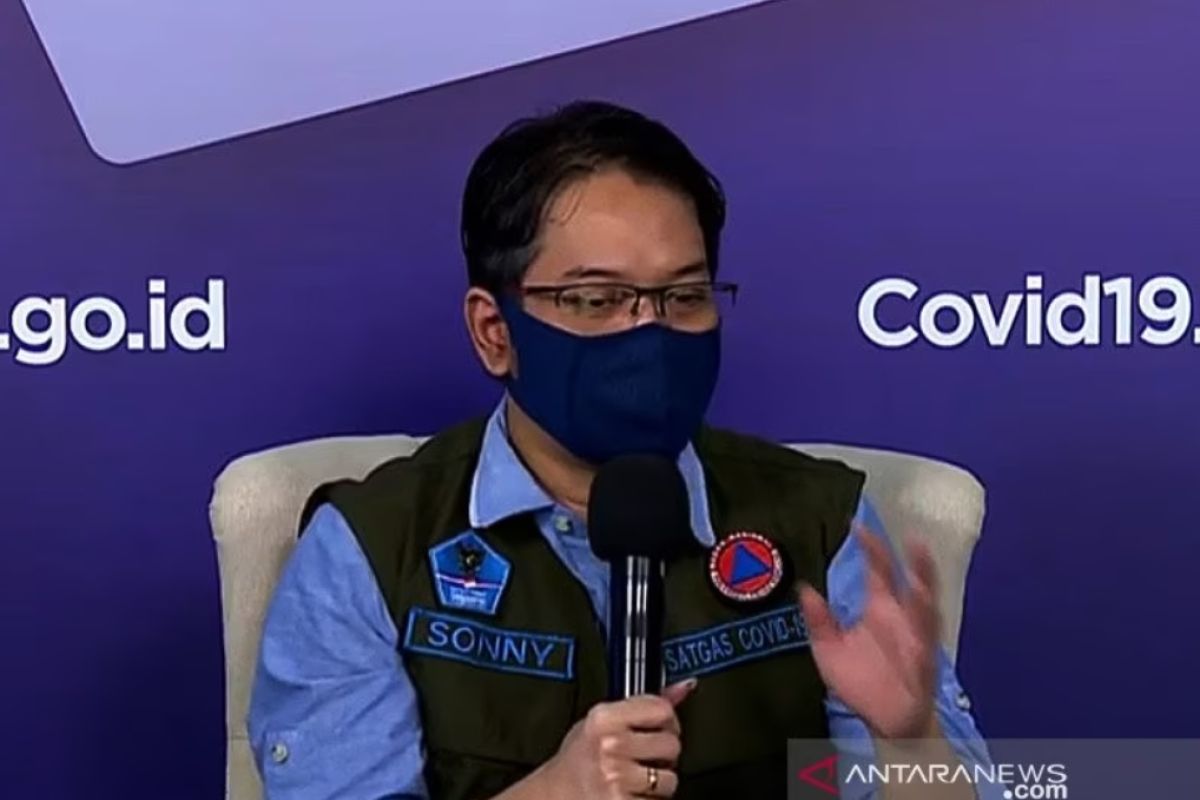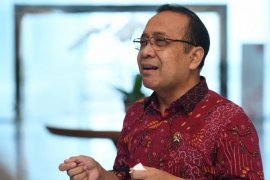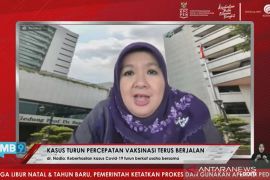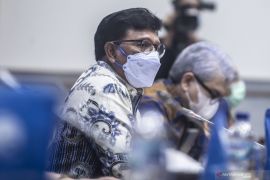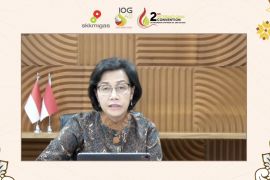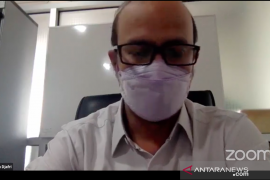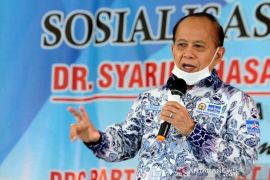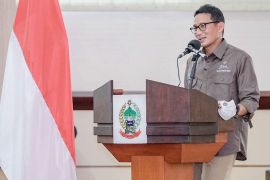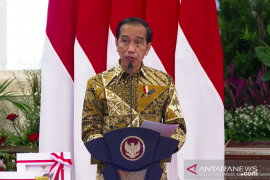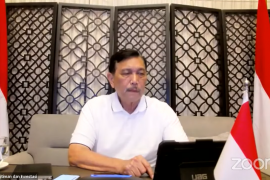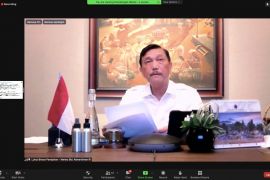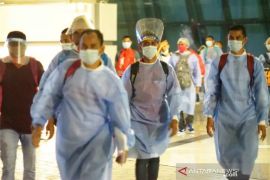In the last two months, we have recruited 28,687 new Behavior Change Ambassadors throughout IndonesiaJakarta (ANTARA) - The National COVID-19 Handling Task Force implemented several strategies to handle a spike in the number of COVID-19 cases ranging from activating the role of Behavior Change Ambassadors to distributing free masks to the public.
"In the last two months, we have recruited 28,687 new Behavior Change Ambassadors throughout Indonesia," Head of Behavior Change for the National COVID-19 Handling Task Force Sonny Harry B. Harmadi noted in a written statement received here, Tuesday.
This effort was one of the strategies to deal with the surge in the number of COVID-19 cases, chiefly of the Omicron variant. The effort aimed to avoid an uncontrollable spike in cases that overburdened health facilities, he emphasized.
The newly recruited ambassadors have been offered special training and voluntarily educate the public to implement health protocols by washing hands; wearing masks; and maintaining distance (3M); always supporting tracing, tracking, and testing (3T); and expediting vaccination.
Until now, some 163,113 Behavior Change Ambassadors are spread across 502 districts and cities across Indonesia, Harmadi stated.
During the last two months, over two million people were directly educated by Behavioral Change Ambassadors. No less than two million masks were distributed to people of the lower middle class, he noted.
In addition to field mobilization, the Task Force also conducted a massive campaign to prevent transmission through outdoor, electronic, online, and social media.
"According to the direction of Lieutenant General Suharyanto, as head of the National Disaster Mitigation Agency (BNPB), the BNPB is also urged to actively participate in the distribution of masks for the community in February 2022," Harmadi stated.
Around 2.5 million masks were distributed by the BNPB team in the Greater Jakarta and Greater Bandung areas as a mitigation effort to curb the spread of COVID-19.
Based on the behavior change monitoring data, Harmadi explained that the community's compliance score with 3M tends to increase.
The compliance score for wearing masks increased, from 7.82 in January 2021 to 8.09 in February 2022. During the same period, the score of adherence to social distancing also grew, from 7.55 to 7.85. Meanwhile, handwashing compliance scores improved, from 7.59 to 8.00. Compliance scores range from 1 to 10.
Harmadi noted that when the number of cases surged and the positive rate increased, the public responded to the increased risk of transmission by limiting activities and implementing health protocols more strictly.
"During the two years of this pandemic, adaptive behavior to prevent COVID-19 transmission has developed in the community. Unfortunately, community compliance in implementing health protocols has not been followed by institutional compliance," he remarked.
Of all the institutions monitored during the January-February 2022 period, only around 14.18 percent of the public institutions had health protocol supervisors.
The COVID-19 Handling Task Force has appealed to the regional task force to continue to improve the supervision of health protocols in public facilities, especially in traditional markets, restaurants/shops, terminals, and tourist attractions.
Meanwhile, the supervision of health protocols is relatively better in offices, schools, and places of worship, he noted.
Related news: Health Protocols Task Force formed amid reopening of public facilities
Related news: Jakarta remains at level 3 PPKM with less COVID-19 testing
Related news: Most cases of COVID-19 transmission occur among public: Task Force
Translator: Andi Firdaus, Resinta S
Editor: Sri Haryati
Copyright © ANTARA 2022
